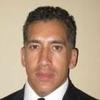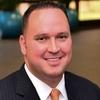Traumatic Brain Injuries: Demonstrating or Disputing the Existence and Extent of Brain Damage Using Expert Witnesses
Strengths and Weaknesses of Different Specialties, Credentialing and Demeanor, Establishing Bias, Addressing Overreaching
Recording of a 90-minute CLE video webinar with Q&A
This CLE course will offer advanced guidance to personal injury attorneys proving or challenging the existence and extent of injury in traumatic brain injury (TBI) cases. The panel will explore what types of experts should be engaged, what to look for in credentialing and demeanor, and strategies for establishing bias, overreaching, or even incompetence in opposing experts.
Outline
- Defining TBI
- Selecting the right TBI experts for the case
- Supporting and challenging imaging
- Traditional imaging
- DTI
- Supporting and challenging behavioral testing
- Cross-examination strategies
- Recording examinations
Benefits
The panel will review these and other pivotal questions:
- How should attorneys for both sides evaluate causation?
- Should every TBI plaintiff undergo neuropsychological testing?
- What are the best strategies to present evidence of cognitive or behavioral dysfunction?
Faculty

Dr. Matthew J. DeGaetano
Program Director and Founder
Personal Injury Institute & Axon Medical Centers
Licensed as a chiropractor, Dr. DeGaetano has worked with medical doctors, chiropractors and law firms all over the... | Read More
Licensed as a chiropractor, Dr. DeGaetano has worked with medical doctors, chiropractors and law firms all over the United States to help professionals work together across disciplinary lines. His areas of expertise include whiplash and brain trauma, the biomechanics of spine trauma, soft tissue injury and repair, pain and proprioceptive neurology, and the management of spine and spine-related disorders.
Close
Dr. Kenneth Gross, MD
MD
Kenneth Gross, MD
Dr. Gross is a neurologist in Philadelphia, Pennsylvania. He received his medical degree from Stony Brook... | Read More
Dr. Gross is a neurologist in Philadelphia, Pennsylvania. He received his medical degree from Stony Brook University Health Sciences Center School of Medicine and has been in practice for more than 20 years.
Close
Weston L. Hall
Partner
Chamblee Ryan
Mr. Hall is a partner at Chamblee Ryan. His legal practice focuses on civil and commercial litigation in a wide array... | Read More
Mr. Hall is a partner at Chamblee Ryan. His legal practice focuses on civil and commercial litigation in a wide array of areas, including trucking and transportation, non-subscriber claims, personal injury, construction litigation, medical and dental malpractice defense, and general negligence lawsuits in a wide range of industries. Mr. Hall also has a business and transactional background and provides valuable consulting to his clients related to entity formation, partnership agreements, and other general business and contract issues. He is a frequent speaker and presenter at various continuing education classes and seminars dealing with a variety of litigation topics and strategies.
Close
Eustace de Saint Phalle
Principal
Rains Lucia Stern St. Phalle & Silver
Mr. de Saint Phalle has established himself as one of California’s top personal injury trial lawyers, having... | Read More
Mr. de Saint Phalle has established himself as one of California’s top personal injury trial lawyers, having personally litigated multiple cases to settlement, verdict, or judgment with awards in excess of $1,000,000 and as high as $25,000,000. For the last fifteen years, he has been running a trial team dedicated to the representation of injured individuals in California which has handled matters specializing in civil litigation that involve complicated medical issues and disabilities. Mr. de Saint Phalle is an accomplished civil litigator in a variety of areas, including industrial accidents, product liability, exceptions to workers’ compensation, premises liability, professional malpractice, auto, bicycle and boating accidents, as well as business disputes.
Close